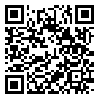Volume 15, Issue 49 (11-2024)
erj 2024, __(49): 1-24 |
Back to browse issues page
Download citation:
BibTeX | RIS | EndNote | Medlars | ProCite | Reference Manager | RefWorks
Send citation to:



BibTeX | RIS | EndNote | Medlars | ProCite | Reference Manager | RefWorks
Send citation to:
salemi F, saadattalab A, mollazade A. The effectiveness of philosophy education program for children on critical thinking, academic self-efficacy and spiritual growth of 10-13 year old female students. erj 2024; 15 (49) :1-24
URL: http://erj.khu.ac.ir/article-1-1455-en.html
URL: http://erj.khu.ac.ir/article-1-1455-en.html
1- Alzahra University , f.salemi@alzahra.ac.ir
2- Kharazmi University
3- Alzahra University
2- Kharazmi University
3- Alzahra University
Abstract: (5137 Views)
This research was conducted with the aim of determining the effectiveness of philosophy education for children on critical thinking, academic self-efficacy and spiritual growth of 10-13-year-old female students. This research was applied in terms of purpose and in terms of quasi -experimental method with a pre-test and post-test design with a control group. The statistical population of the research includes all female students aged 10 to 13 in Tehran in the academic year 1402-1403, of which 32 people were selected as a statistical sample using the available sampling method. Of these, 16 people were randomly included in the experimental group and 16 in the control group. Ricketts' critical thinking questionnaire (2003), Jinks and Morgan's academic self-efficacy questionnaire (1999) and King's spiritual intelligence questionnaire (2008) were used to collect data. Data analysis was done through covariance test and SPSS software version 26. The findings of this research showed that teaching philosophy for children according to the size of the effect (0.617) on critical thinking and its components and the effect (0.706) on academic efficiency and its components and according to the size the effect (0.657) has a significant effect on spiritual intelligence and its components. Therefore, it can be concluded that teaching philosophy for children by strengthening thinking skills and developing inner awareness improves and strengthens critical thinking skills, academic self-efficacy and spiritual growth in students.
Keywords: philosophy for children, p4c, critical thinking, academic self-efficacy, spiritual growth.
Type of Study: Research Paper |
Subject:
Educational Philosophy
Received: 2024/07/7 | Revised: 2025/08/27 | Accepted: 2024/11/30 | ePublished: 2024/12/8
Received: 2024/07/7 | Revised: 2025/08/27 | Accepted: 2024/11/30 | ePublished: 2024/12/8
Send email to the article author
| Rights and permissions | |
 |
This work is licensed under a Creative Commons Attribution-NonCommercial 4.0 International License. |





